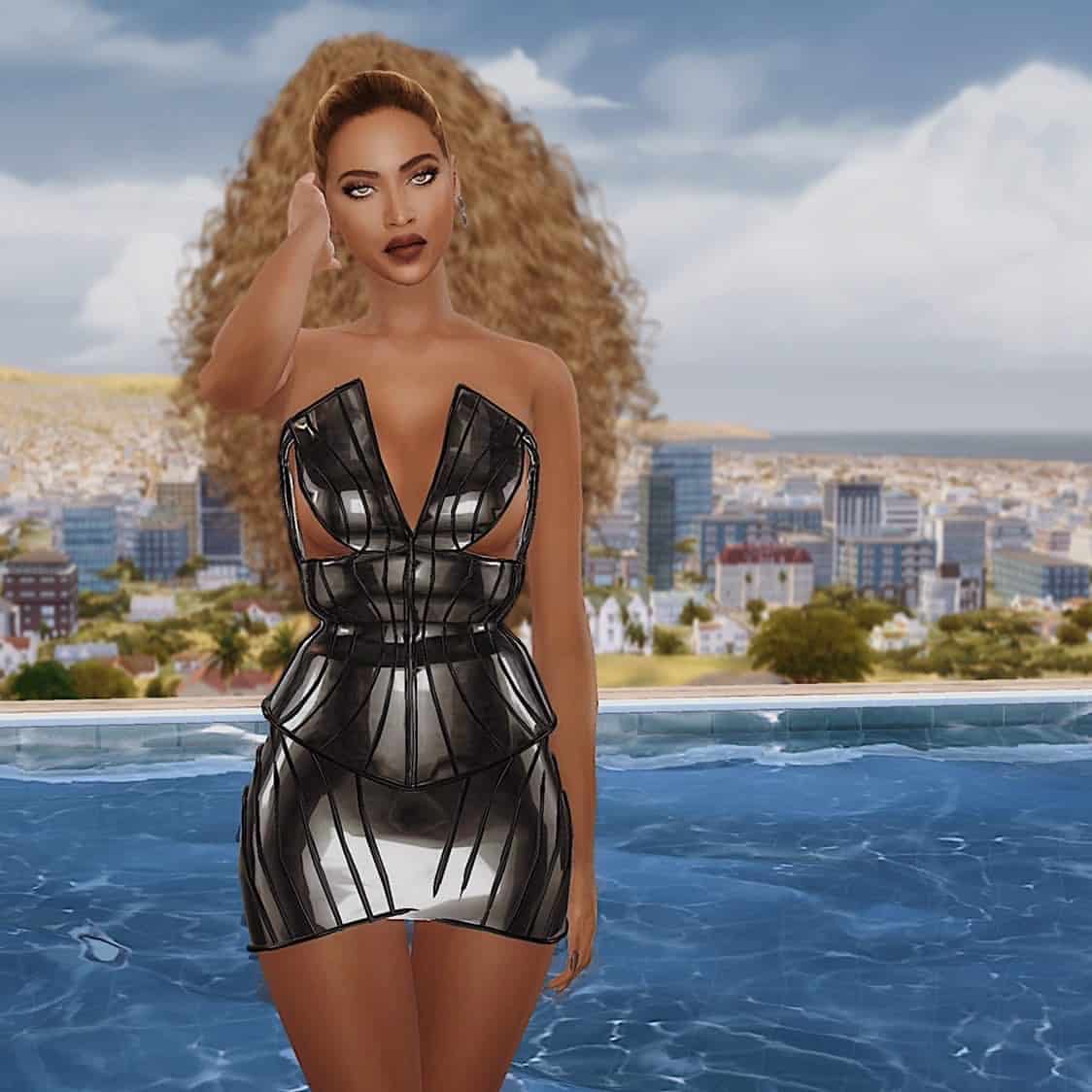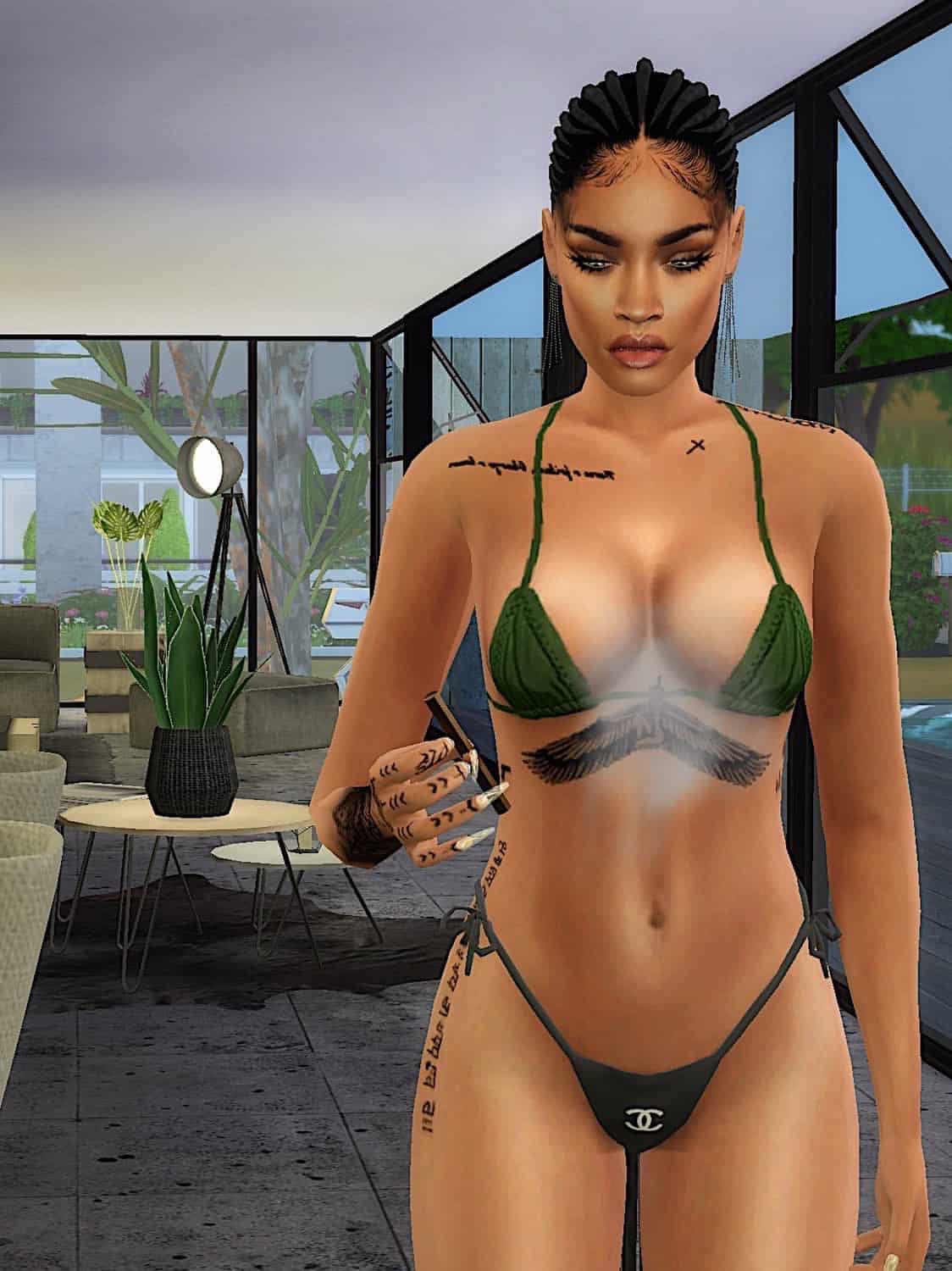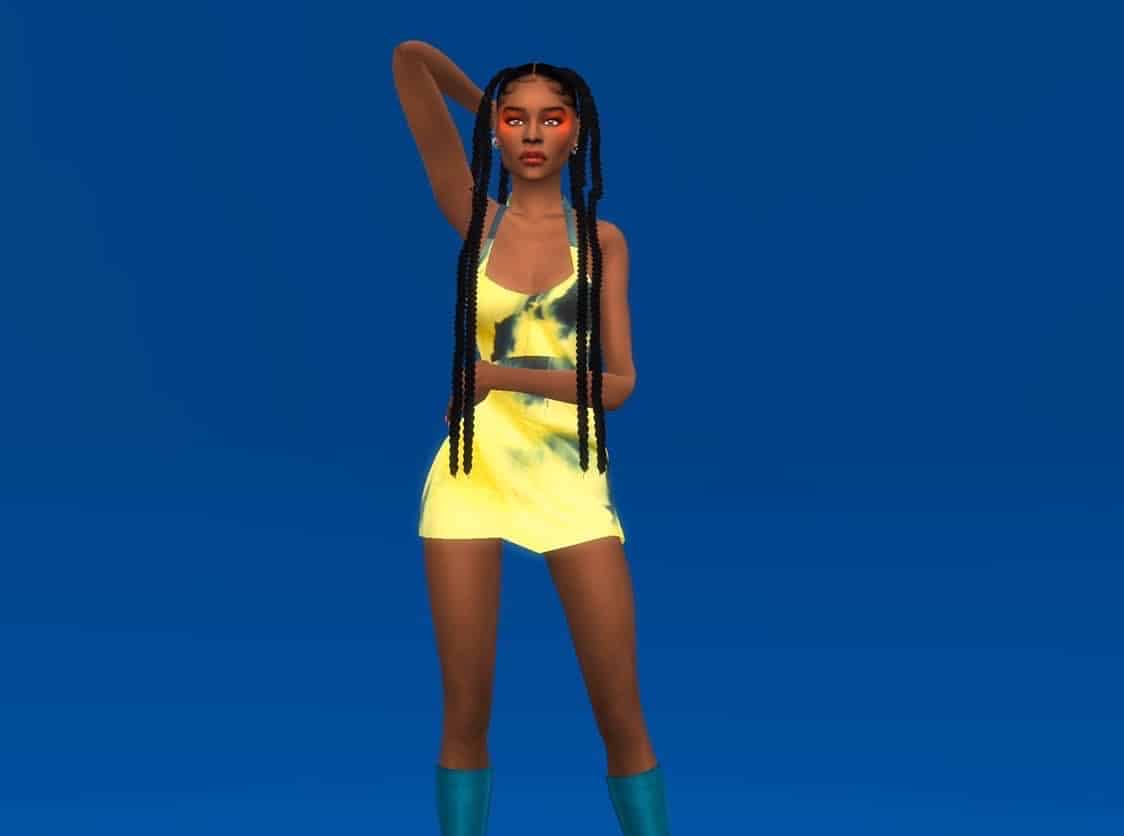Meet Eno, the visual architect turning everyone into Sims
The brains behind the exciting "Body Count" visuals
The brains behind the exciting "Body Count" visuals
who wants their sims in @MOWALOLA_ pic.twitter.com/vtO6nOTa7m
— 𝐳𝐞𝐫𝐨 𝐭𝐡𝐨𝐮𝐠𝐡𝐭𝐬 (@zzz77zz77zz) May 10, 2020
Ahead of the release of his surprise EP, Everything You Heard Is True, Odunsi (The Engine) teased the only record off the striking new tape that we were given any advance warning to expect. The “body count” teaser video depicted Odunsi, DETO BLACK, Amaarae and Gigi Atlantis – the song’s fiery quartet – getting down to their infectious groove… as SIMS!
Watching them strike character-defining poses and break out sensuous moves in the “body count” teaser animated the 20-second clip beyond the affordances of the lively song itself. Much like visuals of inebriated moshpits that surrounded the cries for the long-awaited “wicked, sexy!”, “body count”‘s badass Sims figures added to the allure of the song. Thankfully, we didn’t have to wait too long before the song’s official release, which was accompanied by more performances from DETO BLACK’s and Amaarae’s Sims.
“body count” is a sexually liberating track upon which Gigi Atlantis, Amaarae and DETO BLACK encourage women to defy cultural mores and appease their sexual appetite. Empowering women in more than one way, “body count” sees The Girls run the show, not only the vocalisers on the track (or Mowalola who styles them) but also the 18-year-old Sims enthusiast responsible for the digital depictions. Eno, whose role it was to illustrate the sexy body bouncing which Gigi chants over the hook, is a young Nigerian girl who lives within a society that permits everybody but the woman herself to sexualise the female form, so of course “body count” was deeper than her professional debut:
View this post on Instagram
With her first-ever commission as a digital artist entering the top ten on Nigeria’s Apple Music charts within hours, Eno’s bad bitchery is now indisputable (just like D BLACK’s, another artist who made her debut on the record and the wordsmith of the bar Eno references: “Tell those aunties I’m a bad bitch”). This instantly prosperous collaboration with Nigerian music and fashion powerhouses is a start many creatives would strategise for months for, but for Eno this moment was simply a happy by-product of her creative hobby and perfect timing.
The Odunsi Sim wasn’t Eno’s first time recreating a celebrity figure in her Sims utopia, where every beautiful face she spots in real life has the potential to be replicated. Rihanna and Beyoncé are two other Simed singers which Eno shares with me.

Not only do the likenesses resemble their muses, but everything from DETO BLACK’s assertive dance moves to Odunsi’s photogenic poses bear similarities to the IRL characters – including their fashion choices. Eno’s desire to achieve the most detailed rendering of her subjects led to some quality time with the creative junkie behind the eponymous brand, MOWALOLA, perfecting the familiar ‘fits we see her Sims model in the “body count” teaser shots. Eno tells me of the long-winded process required to self-style your Sims beyond the game’s stock: saying
Though she’s also got pursuing her degree on her plate, Eno is still determined to test the Sims game’s limits, as she looks to flip this hobby into a career. For many of us youngins, Sims was a recreational part of our childhood, to some degree or another, and for Eno, it was to a great degree.

Although she’s still learning how to use the software, by finally putting her name to her work with these “body count” clips, Eno is now ready to take on the difficulty that comes with managing university deadlines alongside a freelance career. A struggle all too familiar for young creatives these days, Eno assures me that she is prepared for the workload to come, and wouldn’t have it any other way.
Eno is so confident her ability to replicate reality – or at least real people – that she’s considering an entirely virtual Instagram presence, creating a Sim for herself who, in her world, can interact with Beyoncé, Rihanna, Gigi Atlantis, and all the other digital avatars to come. And it won’t just be Eno who’s got a virtual presence roaming around the digital world – she thinks Sims and avatars are going to become mainstays on social media. Given the current state of affairs, where physical contact is all but prohibited, it doesn’t seem at all like a far fetched reality that avatars similar to the characters Eno creates will become our proxy for social interaction. In fact, Odunsi commissioning Eno’s Sims for the “body count” teasers – a direct reflection of how the times are pushing artists towards more imaginative visuals – is an early indication of what the (distant) future may hold.

Lil Miquela is a Brazilian-American virtual influencer created by Trevor McFreddies (you may but probably don’t know him as Yung Skeeter) and Sara DeCou for their ‘transmedia’ digital studio, BRUD. Boasting endorsements from Prada and Calvin Klein, and an active music career, she recently released two singles featuring Teyana Taylor, Miquela’s popularity and access has been the subject of much controversy since she grew into stardom.
Last year she, and her co-creators, received backlash for her first-person narrative account of being touched inappropriately in the back of a car. A completely fictional event (because she’s only real in the digital sphere) Miquela’s video seemed insensitive, tone-deaf and inconsiderate of the many real victims for whom sexual harassment and assault is not just a story to register outrage, but an actual traumatic event. In 2018, Dominic Cadogan and Kemi Alemoru addressed the topic of Lil Miquela’s modelling/influencing career sidelining actual models of colour. Kemi Alemoru argued that along with other virtual characters, Shudu and Nfon, Miquela’s presence was enabling companies to capitalise on ‘POC aesthetics’ whilst at the same time marginalising people of colour. It’s this incendiary practice of profiteering, which is inherent in capitalism that leaves Eno disillusioned.
Independently of human (ab)use, technologies don’t actually pose a threat to us (think: ‘guns don’t kill people’), however, it is possible to propagate societal shortcomings through technologies by weaving inequalities into the fabric of what we create online. Eno is distancing herself from that world, and her interest in virtual reality hardly extends beyond Sims and IVMU – another online gaming metaverse. Her characters are based on real-life people, so whatever profit she attains from her passion always comes with the consent and approval of her subjects. Eno has no desire for capitalistic exploitation, she simply wants to reimagine the beauty she witnesses in her everyday life through her own digital lens.
View this post on Instagram
Wojumi is a bad bitch and she’s going to brag about it. Tweet her your latest cultural exploits @dewoju

